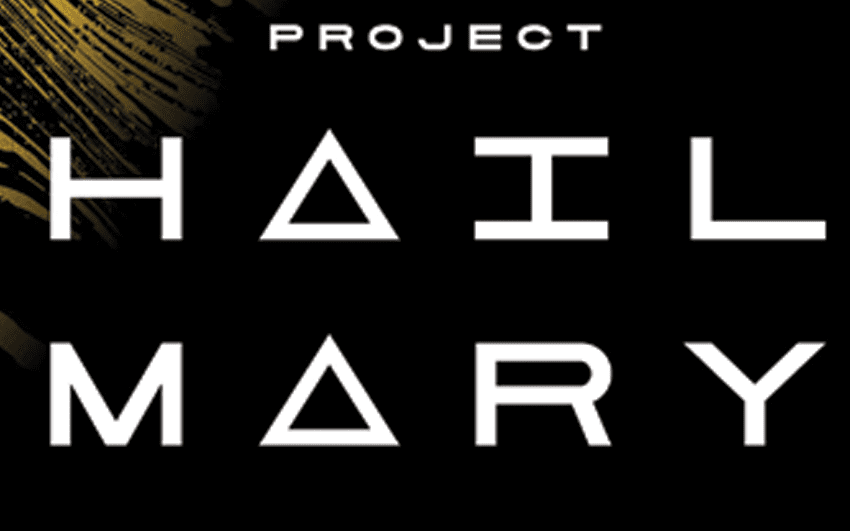Project Hail Mary Review

Hey, guys! I actually have something different for you. I have a book review. I normally do these on my Goodreads. But I’m here in front of the camera. I just did my weekly update. And I thought, what if I just did a vlog version of this. It’s going to be a little less thought out. It’s going to be a little less produced than my normal Goodreads reviews. But the same sort of standards hold.
I only recommend things if I like them. So basically, I give everything five stars. This is because you shouldn’t be coming to be for an in-depth look at a book because the last thing an author needs is Brandon Sanderson trashing their book. If I don’t like a book, I’m just not going to recommend it. If I do like a book, I will recommend it, and I will talk about it, and I will give it a five-star rating, mostly to indicate you should listen to the review, or watch the review, or read the review, and see if it’s a book for you.
In this case, I want to talk about Project Hail Mary by Andy Weir. This is my favorite book that I read last year. I really liked The Martian. I liked Artemis. And I liked this better than either of those. This is more a Brandon book. I mean, I really loved The Martian, but who doesn’t love The Martian? This one has a little bit more science fiction to it. This one has a bit of a more complex narrative and a bit of a more interesting, complex character. And yet it has all the stuff I loved in The Martian. This is the stuff that Andy Weir is really good at.
What can we learn as writers from Andy’s writing in this? Well, what I love that Andy does is he shows that optimism can be compelling as a narrative. I don’t mind the grimdark movement. I think there’s lots of great books that have come out of it. And I like dystopian science fiction quite a bit. Some of my favorite stories are very depressing dystopian stories, such as Harrison Bergeron. But there is a certain electric-fun to optimism. And Andy Weir writes optimistic science fiction, optimistic hard science fiction, even when terrible things are happening.
Because in this book there are certain crises that are pretty terrible. But the idea behind them is the characters are likeable. The story has got its eyes forward instead of backward. And it involves a lot of interesting problem solving. It does hard science fiction in a way that is not off putting, that I feel like I could hand this book to my mother and she—let’s just say is not big on science fiction at all—and I think she’d have a blast with it. Same with The Martian. You don’t have to view hard science fiction as this thing that is this deep, impenetrable genre that people can’t enjoy if they don’t have a Ph.D. And I really enjoyed this book.
It is a—I’m not sure what the actual official term is. It’s what I call a white room novel. White room novels or stories are stories that start off with a character not remembering who they are or how they got where they are, and part of the narrative is figuring that out. And a lot of times you wake up in a white room in these. His you actually do. A lot of them you don’t. The Bourne Identity is a white room novel and it’s one of the best examples of this. The Original, that I did with Mary Robinette is one of these. If you haven’t watched that, you might enjoy it. Or listened to it. It’s an audio original. But I just happen to really like this trope. I think it’s fascinating and interesting, particularly when you do what he did, which is a nonlinear narrative, kind of showing you how the character got where he is at the start.
And so I highly recommend it. I really loved the book. As for a content rating, I think there is an F-bomb somewhere in it, but I do not see anything else in it that would rate it beyond a PG. It is an uplifting, exciting, and well-written novel that I think all of you would enjoy, and I recommend it to you.






